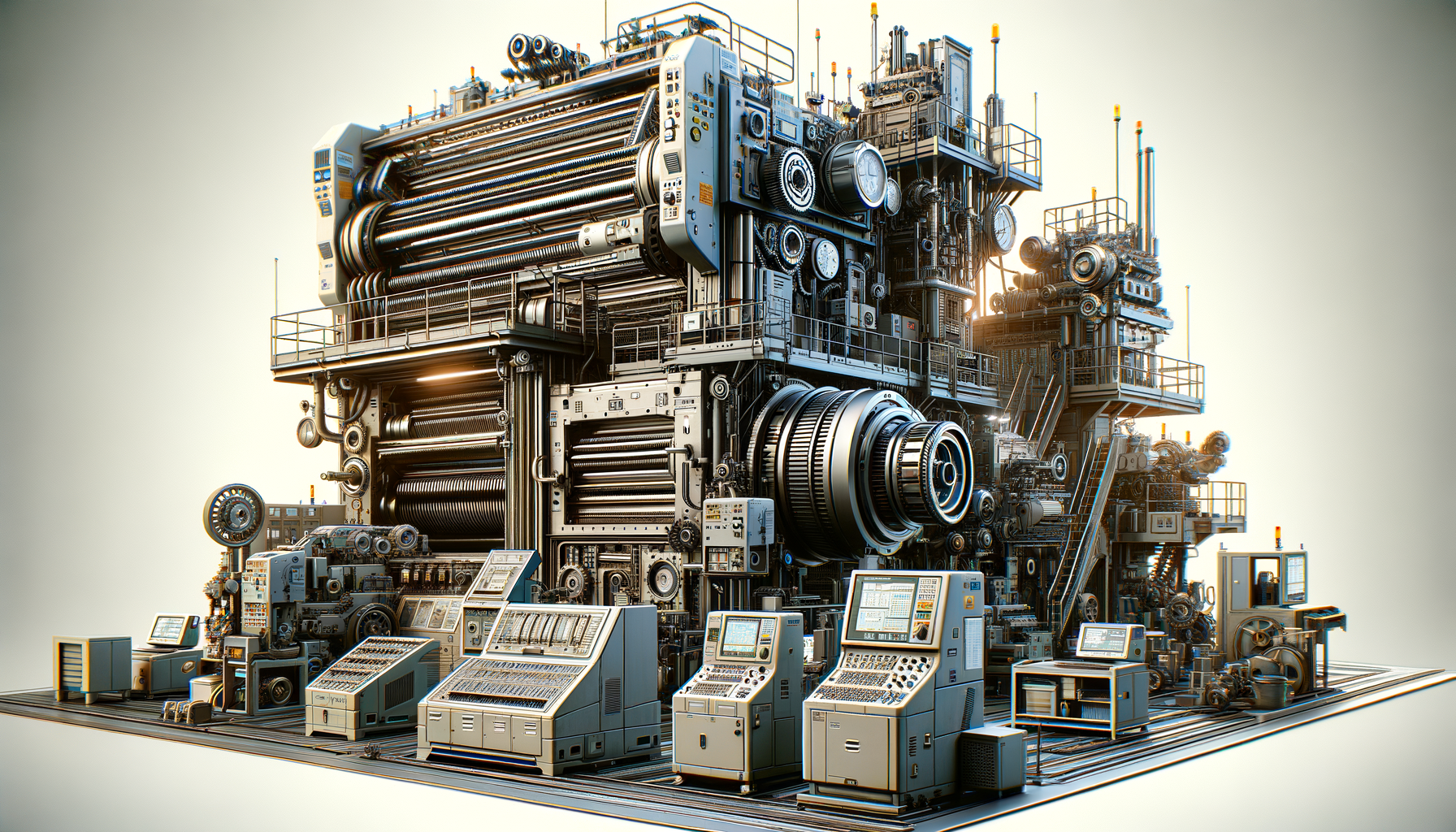Introduction to Industrial Machines
Industrial machines are integral to modern life, impacting both personal and professional environments. These machines, which range from simple tools to complex automated systems, streamline processes and enhance productivity. Whether you’re looking to boost efficiency at home or in a business setting, understanding the capabilities and applications of industrial machines can be transformative.
In this article, we’ll explore the significance of industrial machines, highlighting their role in various sectors. We’ll delve into the types of machines available, their benefits, and how they can be integrated into diverse workflows. By the end, you’ll have a comprehensive understanding of how these machines can simplify tasks and improve outcomes.
Types of Industrial Machines
Industrial machines come in various forms, each designed to perform specific functions. Understanding the different types can help you choose the right machine for your needs:
- Manufacturing Machines: These include CNC machines, lathes, and milling machines, which are essential for producing parts and components.
- Construction Equipment: Bulldozers, cranes, and excavators fall into this category, playing a crucial role in building infrastructure.
- Packaging Machines: From sealing and labeling to wrapping, these machines ensure products are ready for distribution.
- Cleaning and Maintenance Equipment: Industrial vacuum cleaners and pressure washers help maintain cleanliness and hygiene in various settings.
Each type of machine offers unique advantages, tailored to specific tasks and industries. Selecting the right machine involves assessing your requirements, budget, and the scale of operations.
Benefits of Industrial Machines
The integration of industrial machines into workflows offers numerous benefits, enhancing both efficiency and productivity:
- Increased Efficiency: Machines can perform tasks faster and more accurately than manual labor, reducing time and effort.
- Consistency and Quality: Automated machines ensure uniformity in production, minimizing errors and defects.
- Cost-Effectiveness: While the initial investment may be significant, the long-term savings in labor costs and increased output often justify the expense.
- Safety: Machines can handle hazardous tasks, reducing the risk of injury to workers.
These benefits make industrial machines a valuable asset in various sectors, from small businesses to large-scale manufacturing.
Integrating Industrial Machines into Workflows
Successfully incorporating industrial machines into your workflow requires careful planning and implementation. Here are some steps to consider:
- Assess Needs: Identify the tasks that could benefit from automation or mechanization.
- Research Options: Explore different machines and technologies that align with your objectives.
- Training and Support: Ensure that staff are trained to operate and maintain the machines effectively.
- Monitor and Evaluate: Regularly assess the performance of the machines and make adjustments as needed.
By following these steps, you can maximize the benefits of industrial machines, ensuring they enhance your processes and outcomes.
Conclusion: The Future of Industrial Machines
As technology continues to evolve, industrial machines are becoming more advanced and versatile. The future holds exciting possibilities, with innovations like AI and IoT enhancing machine capabilities. These advancements promise to further streamline operations, offering even greater efficiency and flexibility.
For both home and business applications, staying informed about the latest developments in industrial machines can provide a competitive edge. By embracing these technologies, you can optimize your workflows and achieve your goals more effectively.
In conclusion, industrial machines are a cornerstone of modern productivity, offering solutions that simplify tasks and drive success. Whether you’re upgrading existing systems or exploring new opportunities, these machines can transform your approach to work and life.



Leave a Reply